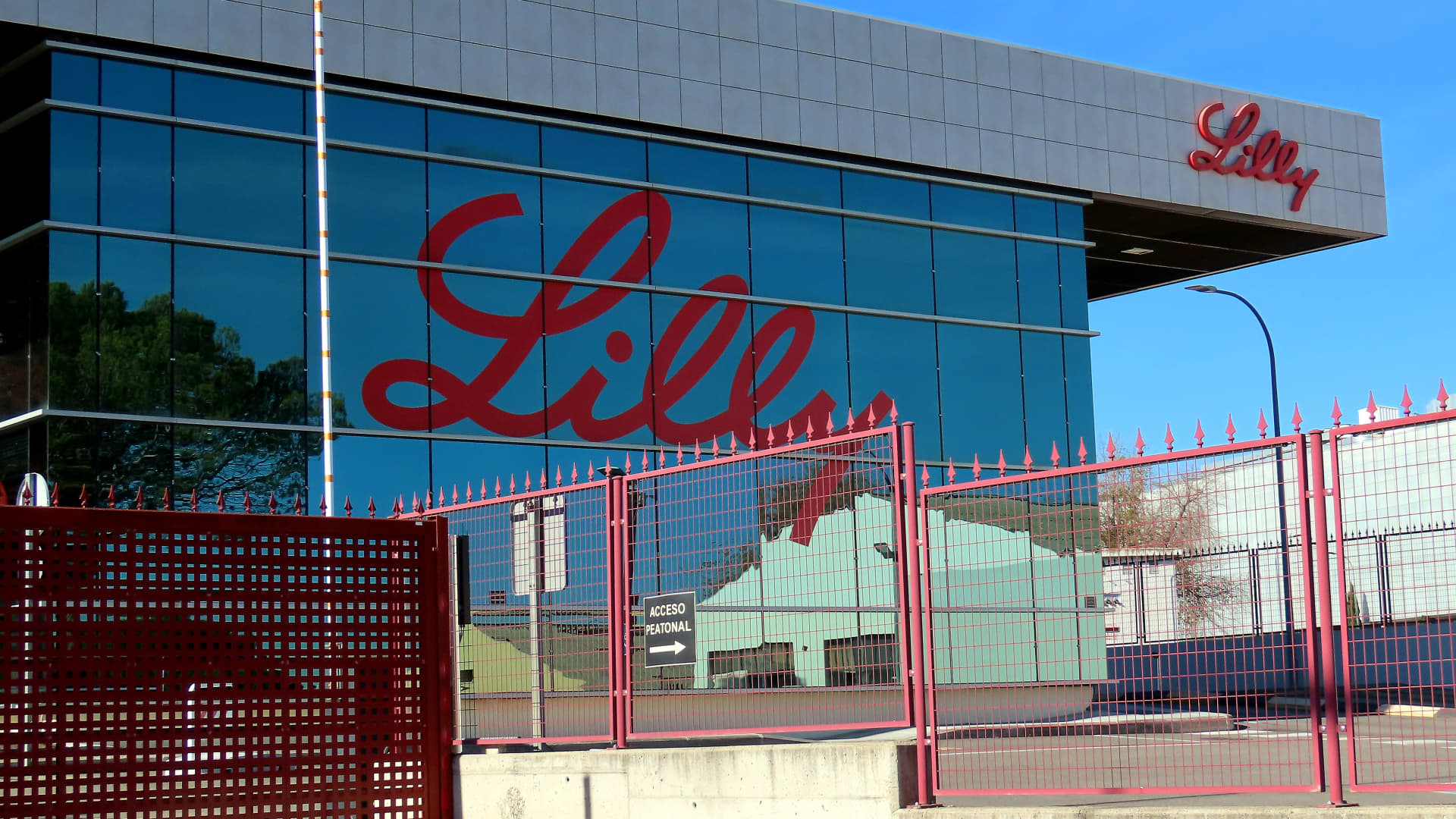Eli Lilly expects FDA decision on Alzheimer’s treatment donanemab by the end of the year
Eli Lilly and Company, Pharmaceutical company headquarters in Alcobendas, Madrid, Spain.
Cristina Arias | Cover | Getty Images
Eli Lilly on Monday said it applied for full U.S. Food and Drug Administration approval of its Alzheimer’s treatment, donanemab, and expects the agency to make a decision by the end of the year.
Eli Lilly is among the pharmaceutical companies racing to market new treatments for the mind-robbing disease after Eisai and Biogen’s drug Leqembi won FDA approval this month. The agency’s signoff was a milestone in the treatment of Alzheimer’s, even though the drug isn’t a cure.
An FDA approval of Eli Lilly’s donanemab would expand the treatment options for the more than 6 million Americans of all ages who have Alzheimer’s.
Eli Lilly on Monday also presented the final results from an 18-month phase-three trial on the monthly antibody infusion donanemab at the Alzheimer’s Association International Conference.
Donanemab significantly slowed the progression of Alzheimer’s in patients at the early stages of the mind-robbing disease, according to the final results. Those patients also had a confirmed presence of brain plaque associated with the disease.
The Alzheimer’s Association, an organization that advocates for people who have the disease, said it “strongly supports” FDA approval of donanemab based on the positive results, which confirm the initial data the company released in early May.
The final results address a previous concern of the FDA, which rejected Eli Lilly’s application for expedited approval of donanemab in January. At the time, the agency asked the company for more data on patients who received the treatment for at least 12 months.
In the phase three trial, patients who received donanemab demonstrated a 35% slower decline in memory, thinking and their ability to perform daily activities at 76 weeks — roughly a year and a half of treatment —compared with those who received a placebo.
Patients at the earliest stage of the disease had a greater benefit after taking donanemab, demonstrating a 60% slower decline in cognitive function.
“The results illustrate that initiating treatment as early as possible enables the possibility of a bigger beneficial effect, but also that there is potential for slowing of disease progression even when treatment is started later in the disease progression,” said Maria Carrillo, Alzheimer’s Association chief science officer, in a statement.
Patients who took donanemab were almost 39% less likely to progress to the next stage of Alzheimer’s disease during the trial.
Almost half of patients – 47% – who received donanemab showed no disease progression a year after treatment began, according to the final trial results. That compares with 29% for those who did not receive the drug.
More than half of patients completed the treatment in the first year, and 72% completed it in 18 months due to clearance of brain plaque.
The Alzheimer’s Association said that data point is “notable for patients, families, prescribers and payers because patients may not need to receive this treatment on an ongoing basis for the rest of their lives.”
But donanemab also comes with risks.
The treatment can cause brain swelling and bleeding in patients that in some cases can be severe and even fatal.
Three trial participants died from these side effects, according to Lilly. More than 800 patients received donanemab in the trial.
Those side effects have been observed in other Alzheimer antibody treatments such as Leqembi.
For all the latest Technology News Click Here

